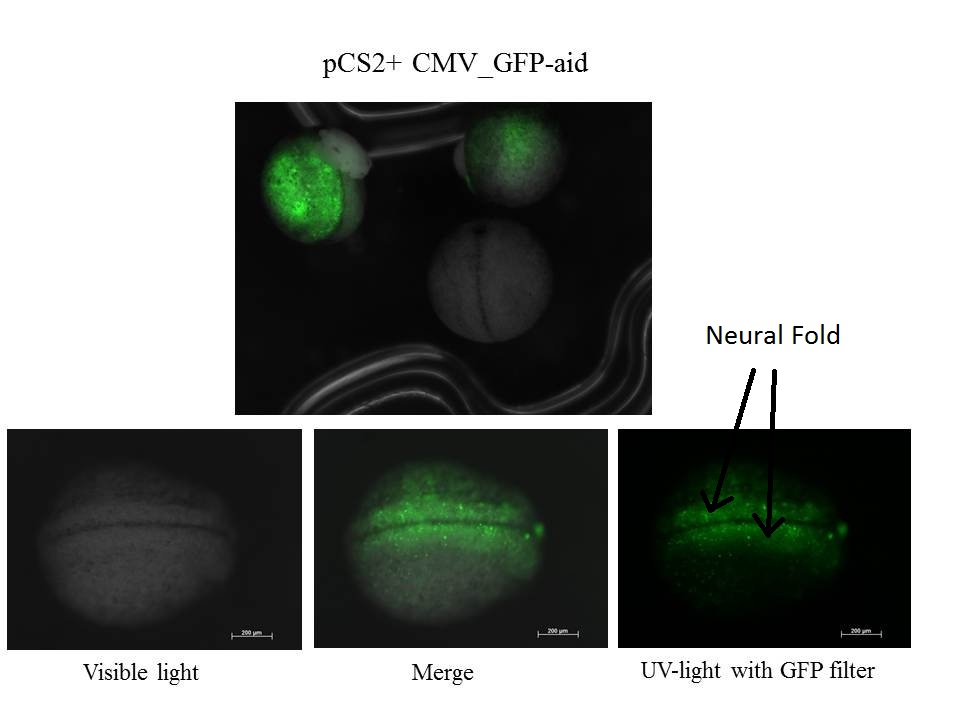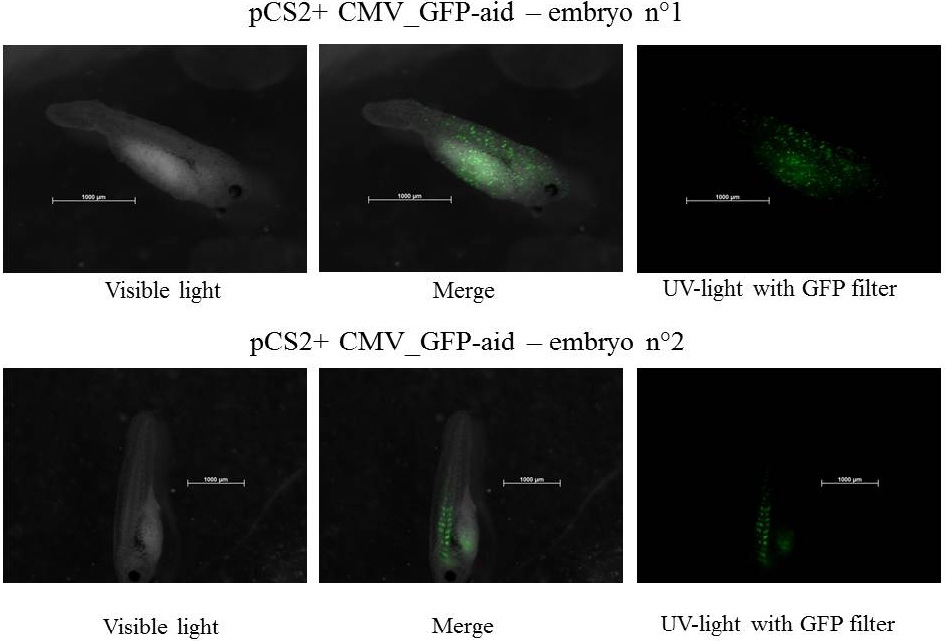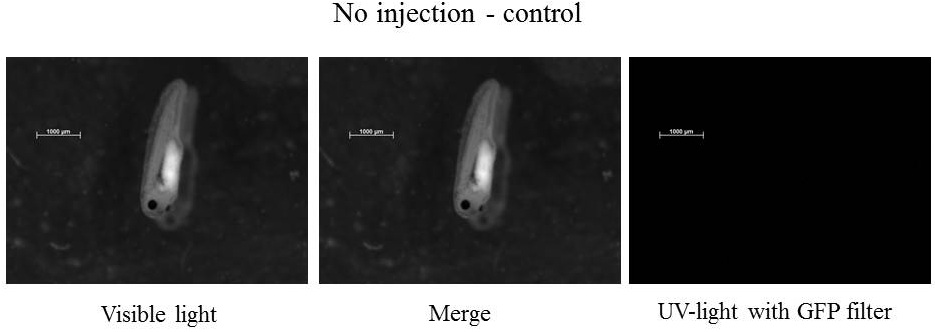Team:Evry/Tadpole injection1
From 2012.igem.org
Plasmid injection in fertilized Xenopus laevis eggs
Plasmids injected:
We injected 2.3 nl of plasmid at 100ng.µl-1 - embryos were stored at 21°C during all the experiment
- pCS2+ GFP-aid: contains the constitutive promoter CMV and the aid sequenced of the aid system fusionned to GFP (Green Fluorescent Protein)(Nishimura et al., 2009). Number of Plasmids injected: ~ 3.78E+7
- pCS2+ citrine: contains the constitutive promoter CMV and the fluorescent protein citrin (yellow). Number of Plasmids injected: ~ 4.38E+7
- pCS2+ mCFP: contains the constitutive promoter CMV and the fluorescent protein mCFP (Cyan Fluorescent Protein). Number of Plasmids injected: ~ 4.37E+7
- pCS2+ GFP-aid co-injected with the plasmid pNHK60 (from Nishimura et al., 2009) : contains the constitutive promoter CMV and the aid sequenced of the aid system fusionned to GFP, pNHK60 contains the CMV promoter followed by the TIR1 protein which in presence of auxin degrade form a complex with aid of GFP-aid and degrade it AID system. Number of Plasmids injected: ~ 1.89E+7 for pCS2+ GFP-aid and ~ 1.3E+7 for pNHK60
- pCS2+ GFP-aid
- pCS2+ citrine
- pCS2+ mCFP
- pCS2+ GFP-aid co-injected with the plasmid pNHK60
24h after injection
Eggs are near stage 20, neural fold is visible


Some eggs expressed GFP-aid and some others not, it means that the injection did not work for some eggs or the eggs do not express GFP-aid
48h after injection
Embryos are at stage 34-38


The expression of GFP-aid is localized in different tissue for each tadpole, in spite of the promoter is constitutive (CMV). We can think that the plasmid does not diffuse in the eggs because of the vitellus viscosity.
3 days after injection
References:
Nishimura, K. et al., 2009. An auxin-based degron system for the rapid depletion of proteins in nonplant cells. Nature Methods, 6(12), p.917-922.
 "
"